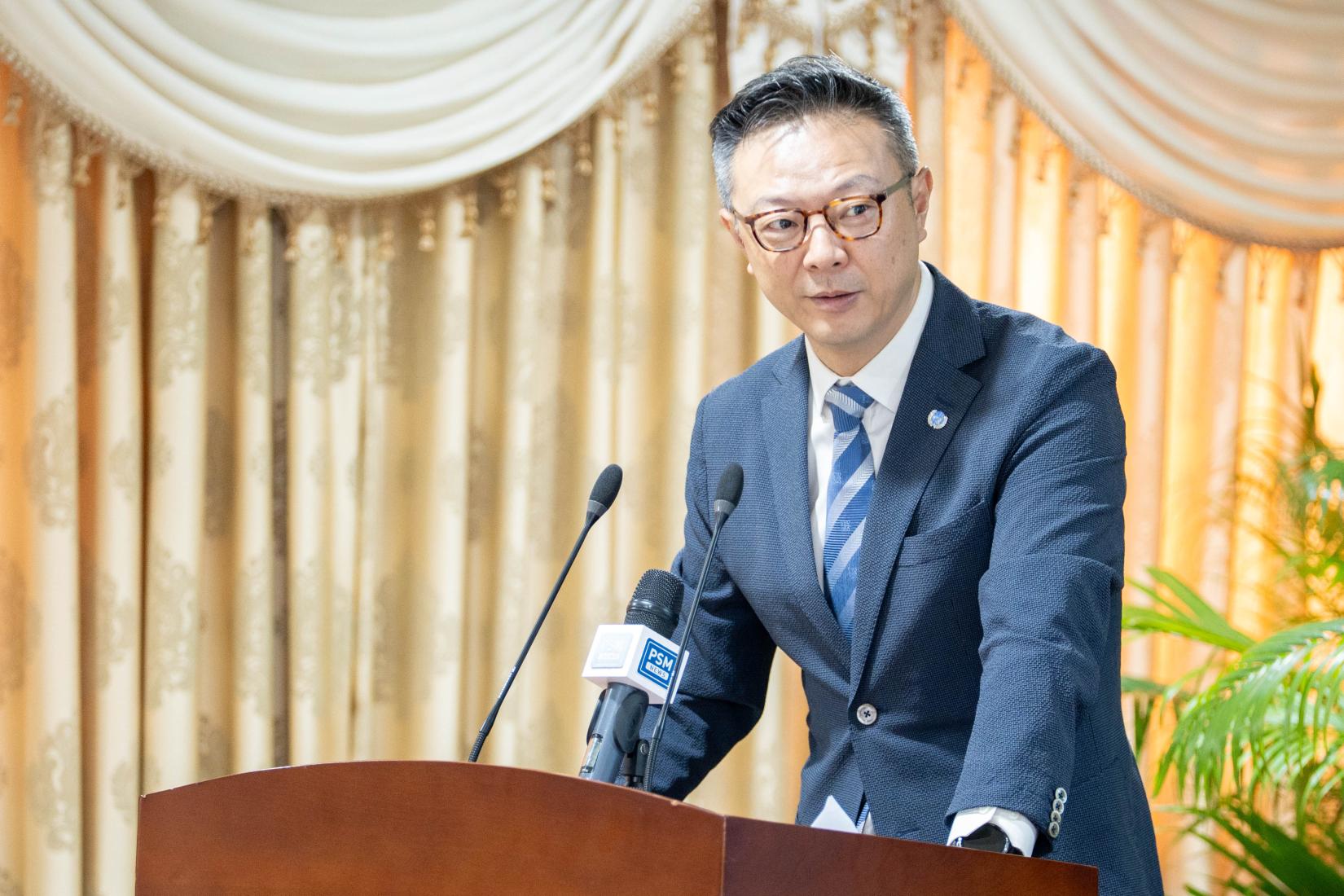The Standing Committee on Youth and Women of AFPPD, Male - Opening remarks by UN Resident Coordinator Mr. Hao Zhang
Opening remarks by UN Resident Coordinator Mr. Hao Zhang

Honourable Ahmed Nazim, Deputy Speaker, Honourable Parliamentarians visiting from the region and those joining in Maldives; Hon. Yoko Kamikawa, Chair of the AFPPD Mr. Usmonov Farruk, Executive Director of AFPPD; Mr. Sugiyama Koji, Chargé d'Affaires, Embassy of Japan, Excellencies, Distinguished Delegates, Dear Colleagues,
It is a pleasure and a privilege to address this distinguished assembly of Honourable Members of Parliament from the region, gathered to deliberate on the critical imperatives of investing in young people and women. I extend sincere gratitude to AFPPD and UNFPA for convening this timely and vital Standing Committee, made possible through the generous support of the Japan Trust Fund.
Asia-Pacific faces significant challenges despite progress, including demographic shifts, climate change, conflict, and uneven development, disproportionately affecting vulnerable groups. Growing conservatism and declining support threaten health, education, and gender equality, making the UN's role crucial. Funding shortfalls and projected regional growth slowdown further complicate matters, with women and girls bearing the brunt.
The UN is responding with focused action, driving efficiencies and prioritizing strategic partnerships. We are working hand-in-hand with government partners, women-led and community-based organizations to ensure vital services continue and leadership flourishes at every level. Our collaborations are expanding, reaching across sectors to include Regional Cooperation mechanisms, the private sector, and international financial institutions, recognizing that collective effort is paramount.
Key challenges include unintended pregnancies, diverse family structures, and work-life balance impacting fertility. Gender inequality persists, with women bearing disproportionate unpaid work and minimal paternity leave. High living costs, economic insecurity, and urbanization deter larger families, delaying marriage and fertility among youth and women due to unaffordable rent, job precarity, and insufficient maternity protection. Institutional barriers include a lack of unified family policies, limited parental leave, inadequate childcare, and poor support for women in temporary/informal employment, limiting their financial autonomy. Despite changing gender norms, women still shoulder the primary childcare burden, and male dominance in reproductive decisions and limited female reproductive autonomy endure. Youth prioritize education and careers over early childbearing, with many young women disinclined to have more children due to stress, lack of support, and rising divorce rates; a significant percentage of young Maldivian women (18-25) idealize not having children.
The message is clear: investing in human capital yields high returns. These findings highlight the need for new policies, as current models may not align with the aspirations of younger generations. As a Small Island Developing State, the Maldives is also ageing, with a median age of 30, emphasizing the increased importance of investing in youth potential. At the other end of the demographic spectrum, we must prepare for a future where 1.3 billion people in the region will be over 60 by 2050. This necessitates a life-cycle approach that ensures older persons can age with health, dignity, and security, supported by investments in the care economy that simultaneously stimulate the broader "silver economy," strengthening health, well-being, and economies.
Hon Members of Parliament,
Thanks to all governments and organizations like AFPPD and other Civil Society bodies for their commitment to the ICPD POA. While maternal and neo-natal mortality and unmet family planning needs have decreased, Gender-Based Violence remains a critical challenge. Achieving gender equality and women's empowerment requires investing in youth empowerment, independence, and skills, especially amidst rapid environmental changes due to megatrends and global risks.
Parliamentarians are crucial for advancing national policies and budgets related to sexual and reproductive health and rights, gender equality, and demographic resilience. In the Maldives, existing women's legislation, though commendable, needs revision due to overlaps and contradictions hindering positive impact. By championing protective laws and advocating for SRHR resource allocation, parliamentarians can convert high-level commitments into tangible progress. Their leadership ensures effective, human rights-based, evidence-backed, and inclusive national development plans, fostering lasting positive change and equitable societies. UN Agencies support these efforts by investing in data for advocacy and policy guidance.
Hon Members of Parliament
Finally, let us be resolute in our commitment to address these challenges head-on. Let us work together to create an environment where women and youth are empowered, where families are supported, and where all individuals can realize their full potential. The time for decisive action is now.
Thank you.





